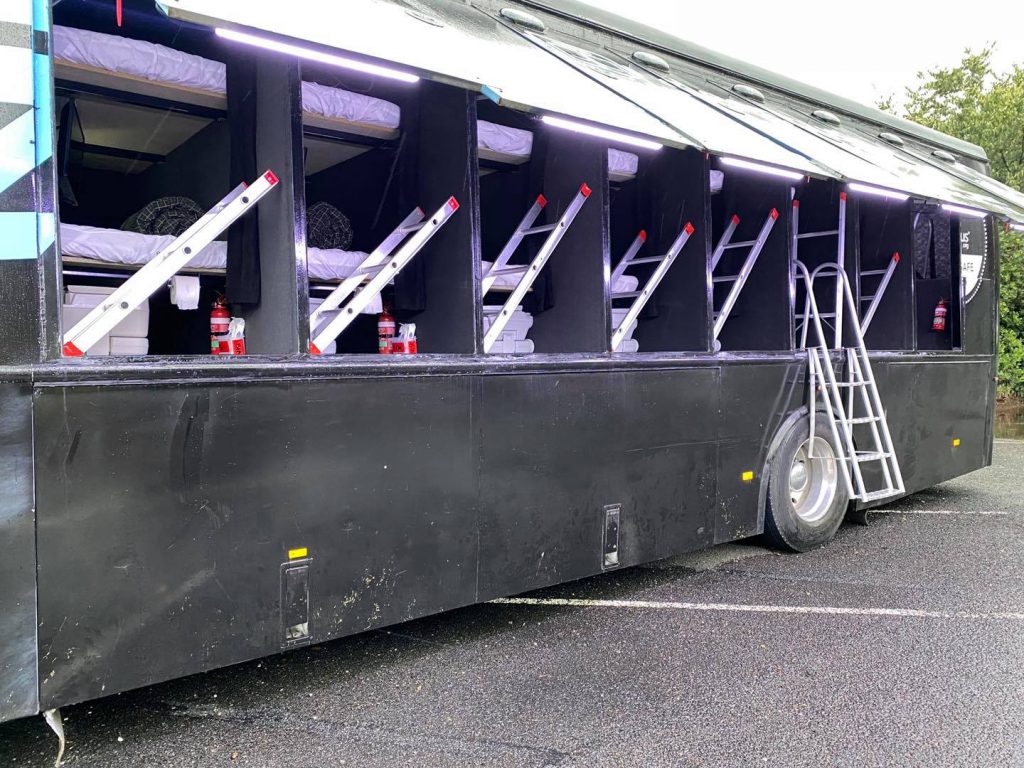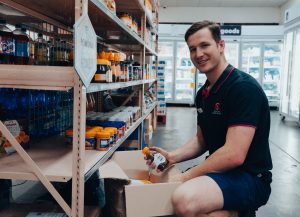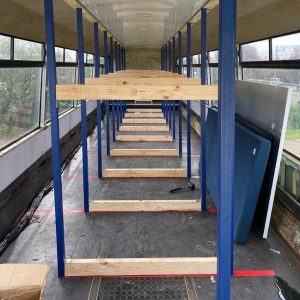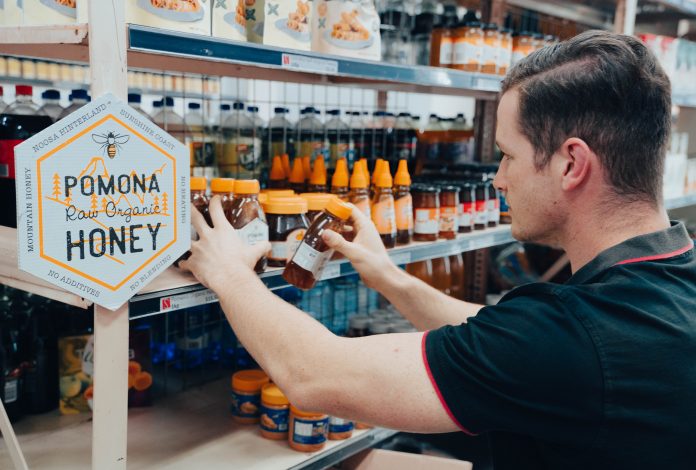Frontline charities battling to help shelter those caught out by the Sunshine Coast’s housing crunch have been hit with another heart-wrenching challenge.
They told Sunshine Coast News they were being inundated with people who could meet soaring rents, but had nothing left in their pockets for basic human necessities.
Maroochydore Neighbourhood Centre (MNC) community development co-ordinator Mark Ellis said the point had been reached where people were lining up for food before the centre was open.
“We are seeing people walking in, embarrassed to come in, and say, ‘Can I grab some food because we are paying rent, but have got nothing else’,” he said.
“Some mornings, I have five people waiting for me at the door before I even get to work.
“I don’t blame them — they’re hungry. They haven’t had a feed in a while.”
This development comes as a short-term solution to the region’s housing emergency nears completion and is expected to be operating on the Sunshine Coast next month.
The first of two sleep buses fundraised by MNC, which will keep up to 20 people off the streets each night, has passed lock-up stage at its Melbourne manufacturing facility and after a coat of paint, final fit-out and finishing touches, will begin their journey north.

MNC each week is helping anywhere up to 140 people who are struggling to make ends meet, with many of those never having previously faced financial hardships.
“People are needing help that haven’t needed it before,” Mr Ellis said.
“On a Tuesday and Thursday night, we are feeding about 50 people each night, and during the day we have about 10 people drop in for a feed or food package.”
Recent statistics from Foodbank revealed a 47 per cent increase in demand for food relief since the start of the pandemic.
Local journalists supporting local people. Help keep independent and fair Sunshine Coast news coming by subscribing to our free daily news feed. All it requires is your name and email. See SUBSCRIBE at the top of this article
A low-cost grocery store in Nambour, run by Suncoast Christian Care, has also seen a spike in demand brought on by housing affordability and high unemployment rates.
Suncoast Care program coordinator Karen Gullo said the low-cost grocery store on Howard Street allowed those experiencing financial stress to become a member and access significantly reduced-price items.
“Many items are very low-cost, and some are even free with new specials available in store every week,” Ms Gullo said.
“With the pandemic, we have seen a significant increase in the need for emergency relief and the provision of food hampers as well as increasing requests associated with the current housing affordability crisis.

“During the recent lockdown, within hours we received a request for 100 meals for local Sunshine Coast university students, many of whom had lost their casual work and were not sure how they were going to be able to afford to eat.”
Meanwhile, Caloundra’s Gateway Care earlier this year launched its Random Acts of Community Kindness (RACK) initiative, allowing Sunshine Coast residents to buy vouchers for struggling families to use at its grocery store.
Gateway director Amanda Peterson said the RACK vouchers were a way to show kindness, while providing practical support to families and people on the Sunshine Coast who needed help.
“Gateway have over 10,000 families on its database and last year alone, we provided support to 3500 families — an increase of 50 families each week against previous year averages,” she said.
“We know that the cost of food and living can at times exceed what many people can afford, and many families are crying out for help.”
As reported previously, rental properties in the region are now averaging more than $500 per week, and are among the highest in the nation.
Do you have a story to share on this issue? Contact us via: news@sunshinecoastnews.com.au
Homelessness has become a major issue, with Sunshine Coast and Noosa councils and the State Government looking at ways to alleviate the situation.
MNC’s Mr Ellis first flagged the idea to fundraise for a sleep bus more than 18 months ago and said that after several setbacks due to COVID and border restrictions, the project was fast becoming a reality.
“I’m looking forward to it getting here,” he said.
“The bus is past lock-up stage and is now being painted.
“It should be here by the end of October, COVID permitting.”
The bus will be parked in Maroochydore from 8pm to 8am each night and sleep 17 to 20 men in Japanese-style pod beds with a television, heating, air-conditioning, lights, charging ports, as well as room for pets.

This follows a series of articles in sunshinecoastnews.com.au, including the push for the Coast’s first sleep bus which, thanks to the generosity of the community, saw the total amount for a second bus raised in two weeks.
Both buses have been donated by CDC Sunshine Coast, which provides school bus services across the region on behalf of TransLink.
“The second bus is sitting ready to go to be converted into a sleep bus,” Mr Ellis said.
“When the first one arrives (in Maroochydore), that one will be taken back down to Victoria.”
Mr Ellis said he expected the second bus, known as a “pink bus” that will sleep women and children, to be in operation by early next year.
MCN’s sleep bus campaign has inspired other regions across Australia to get on board the initiative.
“We had quite a long (fundraising campaign) but that has directly resulted in Hervey Bay ordering one, Byron Bay ordering two and Adelaide raising money for a sleep bus,” Mr Ellis said.
“Areas like Townsville have also shown interest.
“That was all directly because of the fundraising campaign we did here on the Sunshine Coast.
“It’s a win-win for those that are experiencing homelessness across Australia.
“It’s not a long-term solution. It’s a solution for the here and now. A solution for tonight.”
How you can help
MNC receives no funding to provide services to the homeless or hungry. And Mr Ellis is hoping, just as the community did with the sleep bus campaign, residents would donate non-perishable food items in time for an unprecedented busy Christmas.
“We don’t get funded to work with homeless people. We do what we can,” he said.
“We are coming up to Christmas and Christmas is going to hit us pretty hard.
“If people want to look at putting things together for Christmas, when people come to us and say they have nothing for tea for Christmas, we can give them a Christmas hamper.”

Non-perishable pantry items including tinned ham, vegetables and tuna are welcome, but they must have a pull ring.
Another necessity coming into the warmer months is roll-on sunscreen and insect repellent.
“We’re coming into spring and summer, so the mozzies and midges are going to be out in force,” Mr Ellis said.
“It’s the little things we take for granted that these people don’t get.”
For information, go to: maroochync.org.au





